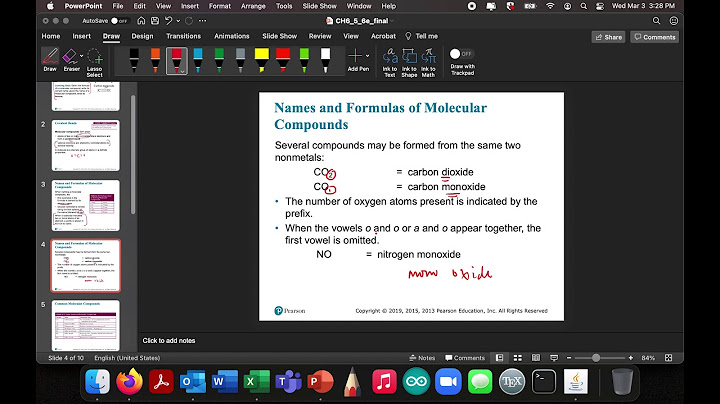The incorporation doctrine is a constitutional doctrine through which the first ten amendments of the United States Constitution (known as the Bill of Rights) are made applicable to the states through the Due Process clause of the Fourteenth Amendment. Incorporation applies both substantively and procedurally. Prior to the doctrine's (and the Fourteenth Amendment's) existence, the Bill of Rights applied only to the Federal Government and to federal court cases. States and state courts could choose to adopt similar laws, but were under no obligation to do so. After the passage of the Fourteenth Amendment, the Supreme Court favored a process called “selective incorporation.” Under selective incorporation, the Supreme Court would incorporate certain parts of certain amendments, rather than incorporating an entire amendment at once. Some argue that Privileges or Immunities Clause is a more appropriate textual basis than the due process clause for incorporation of the Bill of Rights but because Slaughter-House Cases dealing with this clause are surrounded by controversy this theory is not supported by the majority of the court. As a note, the Ninth Amendment and the Tenth Amendment have not been incorporated, and it is unlikely that they ever will be. The text of the Tenth Amendment directly interacts with state law, and the Supreme Court rarely relies upon the Ninth Amendment when deciding cases. Incorporated Amendments
Reverse IncorporationReverse incorporation under Bolling v. Sharpe, refers to the Supreme Court using state law to fill in the gaps when deciding issues which Supreme Court itself has not considered before. This doctrine has not been used very often by the Supreme Court. For more on reverse incorporation, see this Southern California Law Review article and this University of Michigan Law Review article. Further ReadingFor more on the Incorporation Doctrine, see this ABA article on the Seventh Amendment, this Valparaiso Law Review article on the Third Amendment, and this ABA article. Amended by Krystyna Blokhina Gilkis 3.30.20
The Civil War ended on May 9, 1865. Just more than three years later, on July 9, 1868, the 14th Amendment to the U.S. Constitution was passed. This amendment and the 13th and 15th amendments were a part of the Reconstruction Era of the United States, which focused on civil rights and rebuilding the war-torn nation. The 14th Amendment states that every person born or naturalized in America is a citizen of the country as well as their state of residence. Some southern states began actively passing laws that restricted the rights of former slaves after the Civil War, and Congress responded with the 14th Amendment, designed to place limits on states' power as well as protect civil rights. To be readmitted to the Union after the Civil War, southern states had to ratify the 14th Amendment. Initially, Native Americans were not granted citizenship by this amendment because they were under the jurisdiction of tribal laws. It was not until 1924 that Congress passed the Indian Citizenship Act, which granted Native Americans citizenship rights as well. The 14th Amendment has five sections. The first section introduces the citizenship law for all people born in the country or naturalized. This section also covers the limitations of state laws, which cannot supersede federal laws that govern citizens. States cannot deprive citizens of life, liberty, or property without due process of law. Due process of law means that legal proceedings have to be fair and that citizens need to be given notice and a chance to be heard before any rulings are made. When originally passed, the 14th Amendment was designed to grant citizenship rights to African-Americans, and it states that citizenship cannot be taken from anyone unless someone gives it up or commits perjury during the naturalization process. In 1787, delegates of the Constitutional Convention had reached a compromise for determining the number of representatives each state would have in the U.S. House of Representatives. Called the three-fifths compromise, this agreement stated that every five slaves would be counted as three people when determining population for the number of representatives and taxes owed. Section 2 of the 14th Amendment removed this law from the Constitution, giving freed slaves full weight as citizens. The only adult male citizens who were denied the right to vote were those convicted of crimes. Section 3 of the 14th Amendment focuses on rebellion, prohibiting anyone from being elected or appointed to a state or federal office after engaging in rebellion or treason. The houses of Congress can vote to override this if two-thirds of the votes are in favor. Section 4 serves to legitimize the public debt that Congress appropriates. This section was put in place to prevent the Confederacy's war and emancipation debts from impacting the reunited country. The power of enforcement is outlined in Section 5 of the 14th Amendment. This clause gives Congress the power to pass appropriate laws to enforce all of the provisions of this amendment. Debate and controversy have been high regarding the scope of power given to Congress by this section. In 1879, the Supreme Court gave Congress significant authority. Since this time, however, decisions have been more conservative, giving Congress less authority in regulation. Congress does not have the power to regulate the private conduct of citizens, but it can regulate actions by state and local governments. Congress has the authority to stop or resolve rights violations that have a legal precedent, but the remedies have to be proportionate to the violations. Learn more from Tulane University.

Passed by Congress June 13, 1866, and ratified July 9, 1868, the 14th Amendment extended liberties and rights granted by the Bill of Rights to formerly enslaved people.
Following the Civil War, Congress submitted to the states three amendments as part of its Reconstruction program to guarantee equal civil and legal rights to Black citizens. A major provision of the 14th Amendment was to grant citizenship to “All persons born or naturalized in the United States,” thereby granting citizenship to formerly enslaved people. Another equally important provision was the statement that “nor shall any state deprive any person of life, liberty, or property, without due process of law; nor deny to any person within its jurisdiction the equal protection of the laws.” The right to due process of law and equal protection of the law now applied to both the federal and state governments. On June 16, 1866, the House Joint Resolution proposing the 14th Amendment to the Constitution was submitted to the states. On July 28, 1868, the 14th amendment was declared, in a certificate of the Secretary of State, ratified by the necessary 28 of the 37 States, and became part of the supreme law of the land. Congressman John A. Bingham of Ohio, the primary author of the first section of the 14th Amendment, intended that the amendment also nationalize the Bill of Rights by making it binding upon the states. When introducing the amendment, Senator Jacob Howard of Michigan specifically stated that the privileges and immunities clause would extend to the states “the personal rights guaranteed and secured by the first eight amendments.” Historians disagree on how widely Bingham's and Howard's views were shared at the time in the Congress, or across the country in general. No one in Congress explicitly contradicted their view of the amendment, but only a few members said anything at all about its meaning on this issue. For many years, the Supreme Court ruled that the amendment did not extend the Bill of Rights to the states. Not only did the 14th Amendment fail to extend the Bill of Rights to the states; it also failed to protect the rights of Black citizens. A legacy of Reconstruction was the determined struggle of Black and white citizens to make the promise of the 14th Amendment a reality. Citizens petitioned and initiated court cases, Congress enacted legislation, and the executive branch attempted to enforce measures that would guard all citizens’ rights. While these citizens did not succeed in empowering the 14th Amendment during Reconstruction, they effectively articulated arguments and offered dissenting opinions that would be the basis for change in the 20th century.
AMENDMENT XIV Section 1. Section 2. Section 3. Section 4. Section 5. |

zusammenhängende Posts
Werbung
NEUESTEN NACHRICHTEN
Toplisten
#1
#3
#4
Top 6 tlc mein leben mit 300 kg cillas 2022
1 Jahrs vor#5
Top 8 ich liebe dich unendlich italienisch 2022
2 Jahrs vor#6
#7
Top 9 windows 8.1 update-suche dauert ewig 2022
1 Jahrs vor#8
Top 9 co2 flasche füllen in meiner nähe 2022
1 Jahrs vor#9
Top 5 britax römer king 2 gurte einbauen 2022
1 Jahrs vor#10
Werbung
Populer
Werbung

Urheberrechte © © 2024 frojeostern Inc.


















